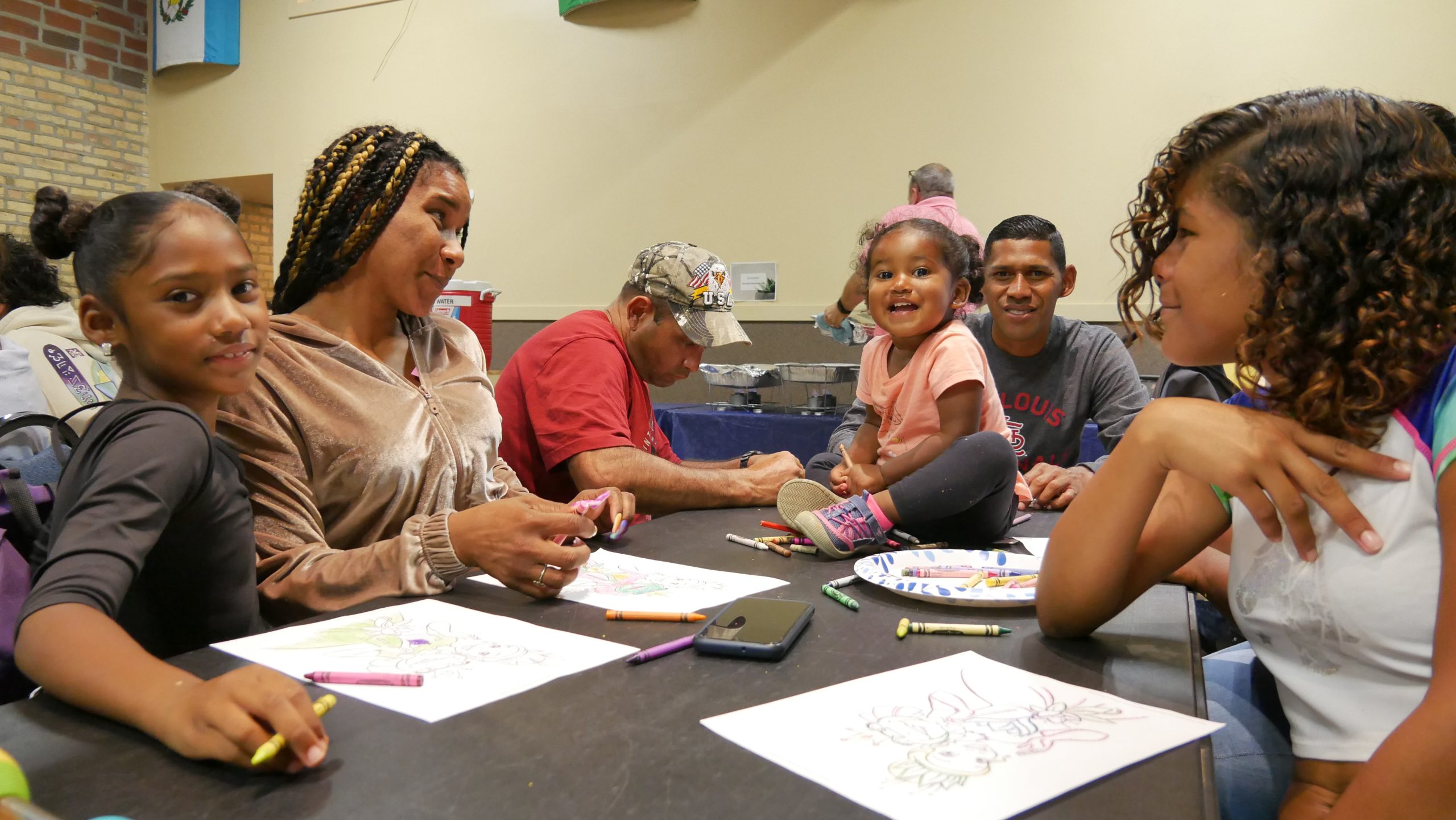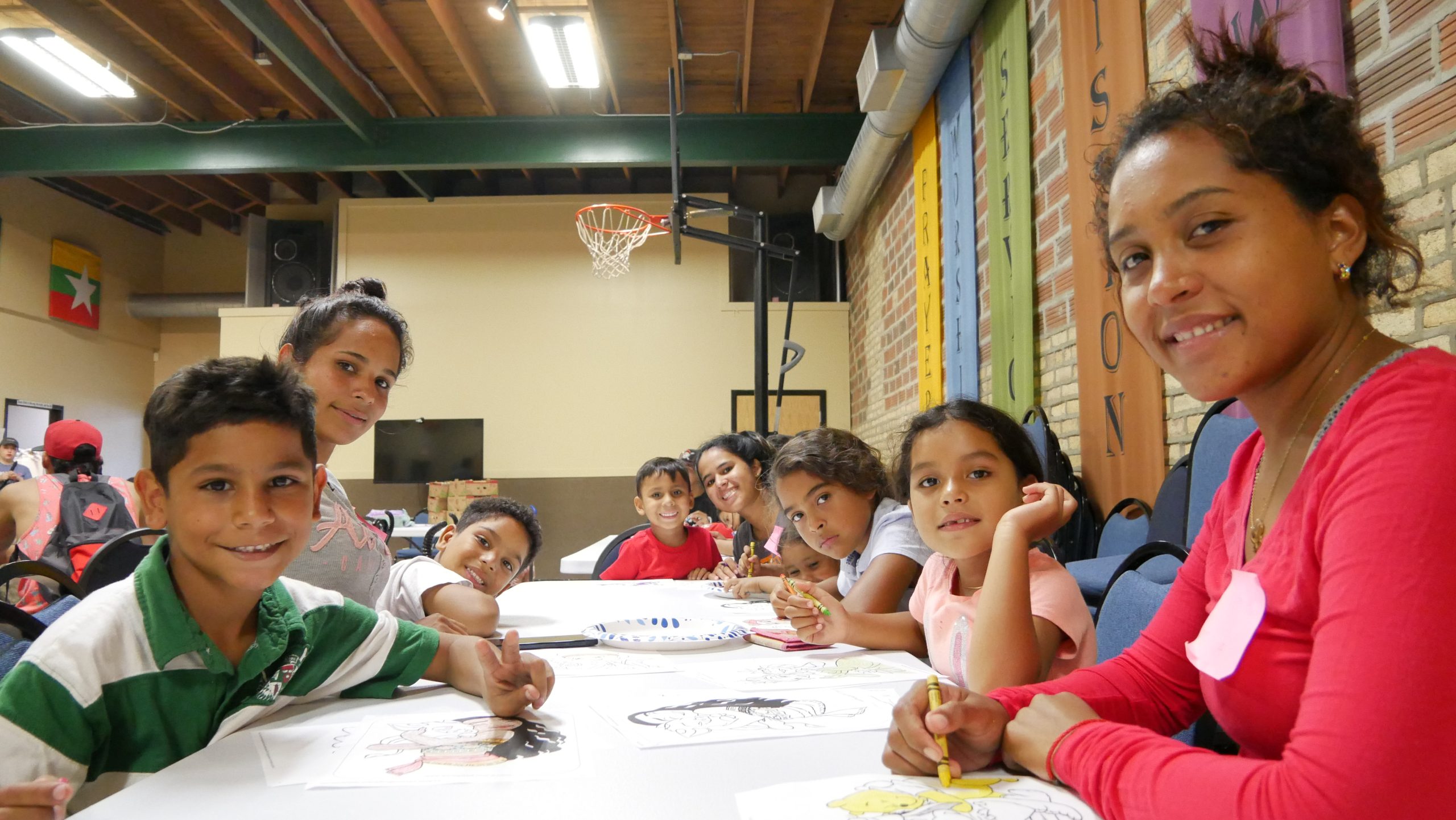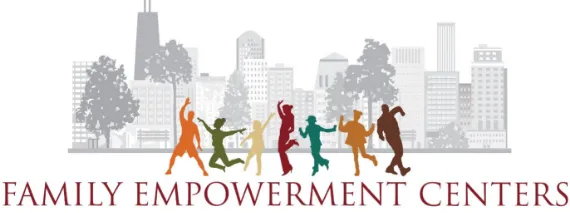How it Started
They are migrant people, they are asylum seekers, they are – as Chicago is calling them – new neighbors.
Since May, we have leaned into a crisis that came to our doorstep. It was to care for the poor, the needy, the homeless, the alien. It was a challenge to either accept this new opportunity to meet the needs of people right in front of us or to look past them as if they didn’t exist. It was an opportunity to either pass by the person left on the side of the road for dead or to stop and begin to bandage wounds, interrupting what was a comfortable rhythm of life at the Center.
Every one of the 11,000 men, women, and children that are sleeping on the floors of our police stations or staying in overcrowded and unsafe shelters, in a city without the infrastructure and staffing to adequately care for them, is facing significant trauma.
Who are these men, women, and children? They are migrant people, they are asylum seekers, they are – as Chicago is calling them – new neighbors. Many have traveled for months to be here because of the oppressive conditions in Venezuela, which motivated many of them to come to America. They walked through jungles. They have endured the horrors of being intimidated and abused by the police in Nicaragua. They have watched as people’s children are swept away in rivers, while trying to cross them. They have eaten one meal a day during their journey (if they were so lucky). Each person has a unique story, such as the woman who showed up on our doorstep having lost her husband; he sat on a curb with 20 other migrants in Texas before a car veered off the road and ran them all over, killing 8 and injuring many more.

Statistics
Here are some statistics from a July 11th meeting hosted by the City of Chicago:
- Chicago has received over 11,000 new arrivals.
- 49 buses since Jan 1, 2023.
- 32 buses between June 14 and July 9. (FEC got involved about 6 weeks earlier)
- 5,233 new arrivals in City shelters.
- 820 awaiting placement at police departments and airports
- On June 27th there were 4,988 new arrivals in city shelters and 650 awaiting placement at police stations.
- 502 people have signed leases and 218 have moved to permanent housing as of July 11.
- After applying for asylum, it will take an additional 6 months for applicants to get work permits.
- The lack of workers, case managers, and nonprofits that are staffed/equipped to do intake and move people through the process is significantly inadequate for the need.
- Temporary shelters at the city colleges need to return to regular college schedules in August and there is no plan of what to do with new arrivals.
- Abuse, neglect, drug use, inadequate food, and sometimes abuse and trafficking are persistent concerns at the police stations and in the shelters. Some new arrivals are preferring the police stations over the shelters for these reasons.
How We Are Involved
We have positioned ourselves as first responders. We are the paramedic that shows up on the scene of the crisis; in this case, the crisis is each individual’s need to be noticed, fed, clothed, and receive immediate needs. The first 7-10 days in Chicago are their most vulnerable days as they sleep on police station floors until the system has caught up enough to get to them. When it does, they move to a temporary shelter that has a bit (and we use that term very loosely) more coordinated effort to provide regular food (although, as we are finding out, sometimes it is not enough and is prepackaged), sheltered sleeping, and sometimes greater ability to shower. The ultimate goal would be to get into a more long-term shelter or permanent housing where they have a dedicated caseworker.
There are 4 shelters within a 15-minute walk of the Center such as the Inn (Hotel) downtown that you might have heard about on the news. These shelters give people a little more permanency but not any quality of life as one would hope for. Sometimes 10 or more people are placed in a hotel room, with no TV’s and one bathroom. Sometimes the shelters are gymnasiums with 100 cots set side by side. No food is permitted in the rooms and in some cases the shelters are overcrowded. There is drug use and safety concerns at these larger shelters. Is it better than the police station floor? Of course. Is it a permanent solution? Not even close. It does buy the system some time for these families to get processed and eventually get some of them their working papers and other resources, but it is a crisis that does not have any end in sight. As a matter of fact, we are finding some of them would rather remain on the street than be in an unsafe shelter.


We get to be the first interaction these families have with Chicago. We get to represent the Church with these most vulnerable people in a good way, in a way that makes a difference. We provide a hot meal for those that come at our designated times. They have an opportunity to shower if they need to shower. We provide toiletries such as toothpaste and toothbrushes. We help families care for their children when their children are sick and need cold medicine. We have taken some to get dental work because of infections related to poor teeth. We find out what clothing needs they have and then provide underwear, pants, shirts, and shoes. We provide strollers, blankets, towels, and pillows as these families come with literally just the clothes on their backs.
Our Need and How to Support
The needs are vast, and the people are new every day. Some days we have 60 people outside our doors looking for food and clothing. We never know what new trauma story we will hear or what the immediate needs someone will present to us will be.
A 6 pack of underwear costs us about $20. If we need to give 12 people 2 pairs of underwear each, that is $80 of expenses. Do that type of math based on the numbers of people who come each day and the financial cost of caring for these vulnerable new neighbors becomes great. We need donors who can help underwrite the ways that we help these men, women, and children.
It also takes people. On our Northside of Chicago we have a strong community network of people who have self-organized to aid in this crisis throughout the Northside and for that we are grateful that we are beneficiaries of this group. However, the need for people’s support is still very much present. We need bilingual help. We need people who can help cook meals. We need people who will love alongside us.
Here is how to offer support:
We need your volunteerism. Reach out to Natalie at Nataliem@familyempower.org
We need your donation of needed essentials. Reach out to Natalie at Nataliem@familyempower.org
We need your financial support. Reach out to Scott at Scottm@familyempower.org or simply click the “Donate Now” button.
- $2500 a month helps us employ two part time workers to assist in this crisis.
- $3500 a month will help us employ a regular ESL teacher to assist in this crisis.
- $1500 a month will help us buy necessary essentials as needed to assist in this crisis.

Days & Times
Currently we are serving the new neighbors 4 days a week. During these days and times we provide the families with breakfast, clothes, and hygiene items. On some of these days we are also offering ESL classes for those who are interested in learning English.
-
Monday8:30-11:00am
-
Tuesday8:30-11:00am
-
Wednesday8:30-11:00am
-
Thursday8:30-11:00am

Have more questions?
Contact our office today!
Call (773) 262-0760 or email office@familyempower.org



